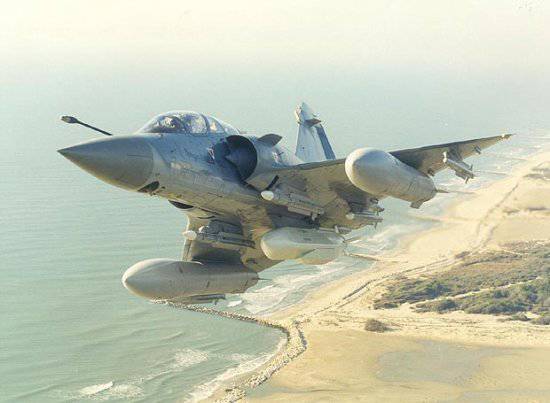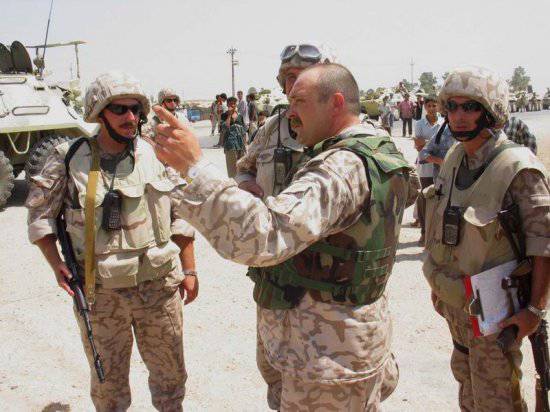France seeks leadership in military conflicts
French helicopter gunships strike heavy arms and armored vehicles of the current president of this state, Loren Gbagbo. France started the immediate implementation of this task after the UN was taken under the control of the UN not only the international airport in Abidjan, but also some areas in the city, which is a stronghold of Gbagbo. Having enlisted the support of the West, the troops loyal to the candidate for the post of President Alassana Ouattare, are preparing to deliver the final blow to the forces of the ruling regime.
In fact, France is currently the leader of the West, participating in both armed conflicts. Until that time, the country preferred to stay away from Côte d'Ivoire's internal affairs in the confrontation between the opposition and the Gbagbo regime, and only in words led the offensive in Libya, while the United States was the real leaders of the initial actions. But last Monday, Paris actually took over the leadership of military operations in both countries in Africa. The French army in Côte d'Ivoire deprived the Gbagbo regime of important strategic advantages in armament in relation to the advancing rebel forces of Ouattara, and the French Air Force aircraft in Libya took on all the brunt of the fighting.
According to official versions of participation in military conflicts, neither intervention is aimed at changing the government. However, earlier French officials repeatedly emphasized that Muammar Gaddafi can no longer remain as the leader of the North African state, and more energetically than all others are seeking his overthrow. A similar situation is on the other front. French Air Force render aviation support for the troops of Ouattara at the most critical moment, when everything is ready for the last decisive blow to the positions of government troops in Abidjan. In reality, this is a change in the ruling regime - but this is not mentioned in the statements of the UN, which on Monday denied information about its intervention in the conflict on the side of one of the warring parties.
The real intentions of France can be judged by the telephone conversation that took place on Monday between President Nicolas Sarkozy and Côte d'Ivoire opposition leader Ouattara. Paris not only comprehensively helps the adversary Gbagbo, but also carries out coordination with him of his actions at the highest level.
Undoubtedly, participation in two operations associated with a regime change at the same time is a rather costly enterprise in terms of policy. Regime change is a complex matter and failure to implement it can quickly affect the home, as US President George W. Bush found out during the midterm elections in 2006. The problem is that failure can manifest itself in various forms - from failure with a change of power to possible failures in the fight against the growing partisan movement, which can more fully emerge after a change of regime. Therefore, the risk aversion of France that multiplied so suddenly requires clarification. Why did Sarkozy initiate the conduct of two military operations at once on completely different ends of a large continent, considering that already in one of them, namely in Libya, failure at the current moment seems to be the most likely outcome of the campaign?
The answer to this question is quite simple. According to individual polls, today Sarkozy is so unpopular among the population of his country that if the elections were held today, he would not have lost in the first round. Obviously, participation in two military campaigns simultaneously is an attempt to enlist the support of a significant part of voters on the eve of the upcoming elections, which are known to be held in 2012 year. In the past, Nicolas Sarkozy has achieved significant success in increasing his shaky popularity due to vigorous international activity. His own party is gradually thinking about putting up another candidate in the 2012 elections of the year. The main contenders are the current foreign minister and prime minister. In addition, outside of his party establishment there is a very real possibility of the emergence of a new center-right candidate. At the moment, it is impossible to say with confidence that the French people will provide significant support to Nicolas Sarkozy because of his active participation in today's actions in the international arena, but at the same time the president has nothing to lose and as a result, this risk is quite acceptable.
It should also be noted that modern France has considerable potential for conducting a military campaign to intervene in two different African countries, at a time when its troops also continue to operate in Afghanistan. France has a number of advantages in this regard. The first of these is that the territory of Libya is actually in the neighborhood, just beyond the Mediterranean Sea, and the second advantage is that its military installations and large bases are located in close proximity to Côte d'Ivoire, France. But these operations clearly demonstrate the expeditionary capabilities of France, which today have no equal in all of Western Europe. It is also important that within the country there were no significant opposition from the participation of France in both military campaigns. This, perhaps, is a significant difference from the extremely hostile attitude of the French people in relation to the US intervention in Iraq, and even to the campaign in Afghanistan approved by the international community, but led by the US. Another advantage is that France acts in Côte d'Ivoire and Libya on its own, without seeking support from Germany. The Paris-Berlin axis over the past twelve months has been working closely on all issues related to the economic crisis in the eurozone, combining efforts into one whole whenever it is necessary to announce decisions to other EU member states, which causes natural and significant discontent. Paris in this axis plays for the most part the role of junior partner, and rarely evades the course dictated by Berlin.
These are not conclusions, but only modern aspects of French intervention in the internal affairs of other states, which, in our opinion, should be paid attention to. France is by far the most capable country in Europe in matters related to expeditionary activities. Regardless of the opinion of the American public about the French opposition in connection with the Iraq war, the majority of French society does not shy away from war. And when it comes to international politics, Paris avoids interaction with Berlin, unlike its approach to the eurozone crisis.
Obviously, these interventions largely play not only an external, but also an internal political role. France is trying to notify Germany that if Europe really intends to become a global player, it needs both military and subtle diplomatic potential. Therefore, in order for Europe to mean something, the economic strength of Germany and the military potential of France are necessary. As long as France continues to prove its real significance in matters that are not at all of interest to Germany, the costs associated with the delivery of such a signal are small. Problems and it is worth noting that quite large ones may arise at the moment when there are obvious contradictions between the Berlin and Paris in the vision of the current perspective. And these contradictions may appear at a time when Paris, together with its NATO allies - the United States and Britain - will encroach on the state interests of Berlin. For example, somewhere east of the Oder River.


Information